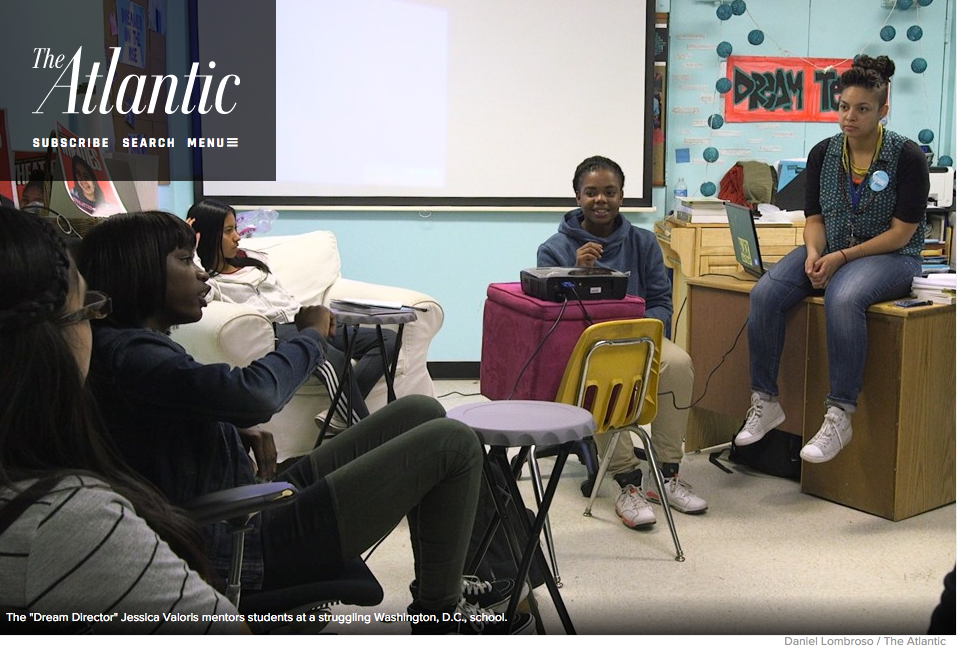New study on the risks and rewards of school-based mentoring
 Lyons, M. D., & McQuillin, S. D. (2019). Risks and rewards of school-based mentoring relationships: A reanalysis of the student mentoring program evaluation. School Psychology Quarterly, 34(1), 76–85. https://doi.org/10.1037/spq0000265
Lyons, M. D., & McQuillin, S. D. (2019). Risks and rewards of school-based mentoring relationships: A reanalysis of the student mentoring program evaluation. School Psychology Quarterly, 34(1), 76–85. https://doi.org/10.1037/spq0000265
Summarized by Rachel Thompson
Notes of Interest: The current study reanalyzed a RCT of a SBM program, with attention on how mentee-reported relationship quality can affect academic and behavioral outcomes. The results of this study provide new insights on the effects of youth-reported relationship quality in a mentoring context. Important implications can be drawn, especially in how school staff and program administrators implement, monitor, and evaluate SBM programs.
Introduction (Reprinted from the Abstract)
In the United States, school-based mentoring programs are a large and widely funded form of mentoring. Despite widespread support, meta-analyses indicate that the effects of school-based mentoring programs are small. One hypothesis for these results is that school-based mentors are not able to develop a sufficiently high-quality relationship with mentees to produce the hypothesized positive effects. This study presents a reanalysis of a large randomized controlled trial of school-based mentoring and examines the estimated effect of mentoring as a function of mentee-reported relationship quality using a novel statistical approach. Although we found that average effect sizes were near zero and consistent with researchers’ original findings, our findings also indicate that low relationship quality is associated with some harmful effects, particularly on misconduct, and that as relationship quality improves, so do effects. However, we found that this association decelerates and resulted in small, positive effects for some outcomes. These results suggest that that poor relationship quality may produce harmful effects and a strong relationship may not be sufficient to produce moderate, positive academic and behavioral outcomes in a school-based mentoring context
Implications (Reprinted from the Discussion)
This study advanced the notion that school-based mentoring programs should support mentors in developing a close relationship with their mentee. We found that youth who reported a high-quality relationship with their mentor tended to have better outcomes in school (e.g., behavior), but these effects diminished as the relationship quality increased. The results suggest that a close relationship may be necessary, but not sufficient, for mentors to impact school outcomes. Future efforts in program development may be enhanced by specifically aligning mentor–mentee activities with targeted outcomes.
First, the results suggest that programs should continue to support mentors in developing a positive relationship with youth. Although the initial impact evaluation demonstrated that, on average, mentors had null effects on youth outcomes (Bernstein et al., 2009), these results suggest that a mentor’s impact increases as youth-reported relationship quality increases. This means that SBM programs should continue to develop strategies to support mentors in developing, and sustaining, a high-quality youth–adult relationship. The results also suggest that relationship quality has heterogeneous effects on school-related outcomes. In a SBM context, increased relationship quality, for example, was moderately and positively associated with behavioral outcomes. However, increased relationship quality was weakly associated with improvements in grades.
These results suggest that, depending on the outcome targeted by SBM programs, programs should modify the types of training and support services they offer their mentors. Notably, this finding is consistent with other SBM research suggesting that mentors balance activities that focus on developing and deepening the relationship with other activities that target skills proximal to school outcomes (Cavell & Elledge, 2014; Keller & Pryce, 2012; McQuillin & Lyons, 2016). Thus, if SBM programs are interested in supporting academic outcomes, the results indicate that SBM programs may need to balance the quality of the mentoring relationship with other skills proximal to academic outcomes.
Although mentee-reported relationship quality appears to be related school outcomes, mentoring programs should not solely focus on relationship quality to maximize impact on school outcomes. The effect of mentors on youth’s academic outcomes, for example, only increased marginally as relationship quality improved. However, relationship quality was most strongly associated with behavioral outcomes. This suggests that school staff responsible for delivering SBM services should carefully consider how programmatic activities directly affect the outcomes targeted by the SBM program. School staff, for example, may consider monitoring and supporting mentors in developing a close relationship with youth while also providing mentors with other training and support services to directly target proximal skills necessary for academic success and other outcomes that the SBM program targets
To access this article, click here.










